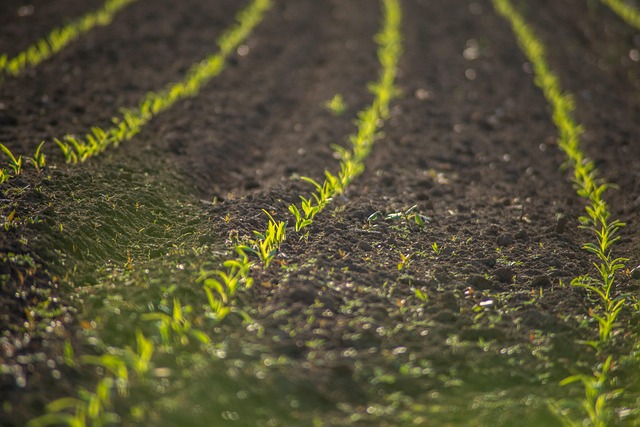Tips to Improve Soil Naturally

In order to improve soil naturally is one of the most effective ways to create a strong foundation for sustainable farming. Healthy soil is rich in nutrients, teeming with beneficial microorganisms, and has good structure and water-holding capacity. Unlike chemical methods that offer short-term results, natural soil improvement builds long-lasting fertility and resilience, ensuring better crop yields over time.
One of the simplest ways to enrich the soil naturally is by adding organic matter such as compost, manure, or green waste. These materials not only provide essential nutrients like nitrogen, phosphorus, and potassium but also enhance soil texture, making it more aerated and better at retaining moisture. Natural mulching with straw, leaves, or crop residues helps protect the soil from erosion, regulate temperature, and feed earthworms and microbes that keep the soil alive.
Another powerful method is crop rotation and cover cropping. Rotating crops prevents nutrient depletion and breaks pest and disease cycles, while cover crops like legumes fix nitrogen in the soil and improve its structure. Additionally, encouraging biodiversity — both above and below ground — promotes a balanced ecosystem that supports plant growth naturally.
Avoiding excessive tillage, using natural fertilizers, and adopting biodynamic or organic farming practices can transform depleted land into fertile, productive soil. These methods not only increase soil fertility but also boost water retention, reduce dependency on chemicals, and make farming more eco-friendly. In short, improving soil naturally is about working with nature, not against it — building a living, breathing soil that supports healthy crops and a sustainable farming future.
- Adding Organic Matter
One of the most powerful ways to improve soil naturally is by enriching it with organic matter. Materials such as compost, farmyard manure, crop residues, and decomposed leaves provide essential nutrients that enhance soil fertility. When organic matter breaks down, it releases vital elements like nitrogen, phosphorus, and potassium, which support healthy plant growth. It also improves soil structure, allowing better air circulation and water retention. This makes the soil more resilient during droughts and heavy rains.
Types of organic matter to use:
- Compost: Made from kitchen waste, crop residues, and farm by-products.
- Manure: Adds both nutrients and beneficial microbes.
- Green waste: Such as grass clippings, leaves, or green manure crops.
- Practicing Crop Rotation
Crop rotation is a sustainable farming technique that involves planting different crops in the same field each season. This method helps maintain a natural nutrient balance in the soil. For example, leguminous plants such as beans and peas add nitrogen back into the soil, while root crops like carrots or potatoes help break up compacted soil layers.
Benefits of crop rotation:
- Reduces soil nutrient depletion
- Breaks pest and disease cycles
- Improves soil structure and fertility
- Using Cover Crops
Cover crops are planted between main cropping seasons to protect and nourish the soil. Crops like clover, alfalfa, or sun hemp can fix nitrogen, reduce erosion, and increase organic matter. Their roots help bind the soil, prevent nutrient runoff, and support microbial activity.
Advantages of cover crops:
- Adds natural nitrogen
- Prevents weeds and erosion
- Improves soil texture
- Reducing Soil Disturbance
Excessive tilling can destroy soil structure, harm beneficial organisms, and lead to erosion. A natural approach involves minimal or no-till farming, where the soil remains covered and undisturbed. This encourages earthworms and microbes to thrive, creating a healthier ecosystem beneath the surface.
Key practices:
- Use mulching to protect the topsoil
- Rely on natural compost instead of chemical fertilizers
- Plant deep-rooted crops to improve aeration
- Encouraging Soil Biodiversity
Healthy soil depends on the life within it. Beneficial organisms like earthworms, fungi, and bacteria break down organic matter and recycle nutrients. Farmers can support this biodiversity by avoiding harmful chemicals and maintaining organic soil cover.
How to boost soil life:
- Apply compost and bio-fertilizers
- Maintain natural soil moisture
- Grow diverse crops and companion plants
- Water Management and Mulching
Proper water management prevents nutrient leaching and soil degradation. Using natural mulches like straw or dried leaves helps retain moisture, suppress weeds, and regulate temperature. It also gradually adds organic matter to the soil as it decomposes, further improving fertility.
By combining these natural practices, farmers can build rich, living soil that sustains healthy crops year after year. This approach not only reduces input costs but also protects the environment and promotes long-term agricultural productivity.
Conclusion
Boost your farm’s productivity naturally with Indochem Agrovet’s expert solutions! From high-quality bio-fertilizers and compost to advanced soil enrichment products, we help you improve soil health and increase crop yields sustainably. Take the first step toward healthier, more fertile soil today!
📞 Call us now: +91 9830 720311 / 83369-77770
🌐 Visit: https://indochemagrovet.in/
Mumbai Office:
Parewala House No.4, Vakola, Santacruz (East), Mumbai 400055
Kolkata Office:
Block – DD, House no-197, 1st Floor, Street no-295, Action Area-1, New Town, Kolkata, West Bengal 700156
Enhance soil naturally. Grow crops better. Choose Indochem Agrovet — your partner in sustainable farming!

